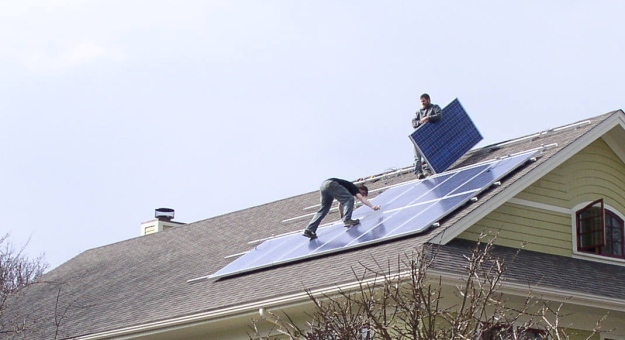Extended Producer Responsibility (EPR) is a growing movement to get producers of products to bear responsibility for the management of their products at the end of their lifecycle, usually through legislation. The Massachusetts legislature took up three EPR bills last week on paint, mattresses, and paper/plastic recycling. It is a financial burden on towns to have to recycle an increasing variety of materials on their own. In Newton, we do not recycle mattresses for this reason, and having a mattress EPR in Massachusetts would help support mattress recycling.
EPR should extend to all products including EVs (think battery) and solar panels, so that products that promote sustainability don’t create new problems. The post below by the Product Stewardship Institute exemplifies EPR legislation that will keep solar panels sustainable from beginning to end.
Niagara County Passes Nation’s 2nd Solar Panel Producer Responsibility Law
Niagara County, N.Y. — Last week, Niagara County became the nation’s first local government, and only the second jurisdiction in the United States, to pass a lawrequiring producers of solar panels sold in the county to finance and manage their safe reuse and recycling when decommissioned.
Passed on June 15, the new program requires solar panel manufacturers to register with the county and submit a plan for approval that details how panels no longer in service will be collected and recycled to meet environmentally protective standards. Manufacturers must provide collection services at no additional costs to all residents at convenient locations throughout the county. They must also meet performance goals for the recovery and responsible management of panels: recovering 100% of panels and reaching a combined reuse and recycling rate of 65% five years after the program goes into effect (which will rise to 85% at the 10-year mark).
“This law is especially significant in Niagara County, which has long had to contend with the negative impacts of the nuclear and chemical industries,” said Dawn Timm, director of the County’s Division of Environmental and Solid Waste. “The careful planning the law provides for the recycling of solar panels, with ultimate responsibility placed on the producers introducing the technology, will go far in ensuring the safety and health of Niagara County communities.”
The Product Stewardship Institute, Inc. (PSI), a national nonprofit dedicated to reducing the health and environmental impacts of consumer products, customized the bill for the county, basing it on best practices from around the world, including a recently passed Washington State law. Niagara County’s law is now the 122nd producer responsibility law passed in the U.S. on 14 products across 33 states.
“With the passage of this law, Niagara County is at the cutting edge of the producer responsibility movement,” said Scott Cassel, PSI CEO and founder. “Solar panel recycling is a new frontier, and as the first generation of solar panels come out of commission, this type of forward-thinking policy will be needed by other communities, counties, and states to take on.”
# # #
About the Product Stewardship Institute (PSI):
PSI is a national nonprofit bringing diverse stakeholders together to reduce the health and environmental impacts of consumer products and packaging with a strong focus on sustainable end-of-life management. PSI has built capacity for product stewardship in the U.S. for more than 20 years—together with 47 state environmental agency members, hundreds of local government members, and over 120 partners from business, universities, organizations, and international governments. Learn more at productstewardship.us.



Recently on Twitter